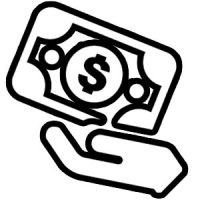First, a caveat: it’s important to carry credit cards that fit your lifestyle. So people who carry a balance should get the lowest interest rate cards they can. But once those cards are paid off, you want to switch to cards with the richest possible rewards.
When I was at Good Morning America I did a savings makeover on a couple named Mike and Kim Strickland. They had had credit card debt in their 30s, but as they prospered in life and career, they had paid all of that off. And yet they weren’t taking advantage of the opportunity to snag a cash back credit card with decent returns. Instead, they were messing around with a couple of their old low-interest, no frills cards. And they also had a card that offered trinkets and miles that they never redeemed.
That is SO typical and if you know you’re the type of person who’s not going to book a vacation early enough to use miles or not going to shop on the special credit card site to buy products with your miles, you should go for cash back. For the Stricklands, I found a card that paid 5 percent cash back on certain purchases and 1 percent on the rest. The card also had no annual fee, which was a huge improvement over the $395 a year they were paying for their main card. If the Stricklands continued to spend the same amount on their credit cards that they had for years, I calculated that they would make $1,599 a year in cash back EVERY year with their new card. Nice!
I can’t tell you which cash back credit card to choose because it depends on your lifestyle. If you spend the most on groceries and gas, you’ll want a card that rewards you for that. If your big ticket items are home improvement stores or dinners out, choose a card that rewards those. You see? Luckily, there ARE websites that help you find the ideal cash back credit card for you. And I will link you to a few of these handy free resources from EasyMoneyShow.com/72. Be sure to scour their entire lists, rather than just the credit cards at the top, because some sites take money to highlight certain cards more prominently and you may find your ideal card lower on the list.
LINK: Websites that help you find the ideal cash back credit card for you.:
www.creditcards.com/cash-back/
www.creditkarma.com/credit-cards/cash-back-cards
wallethub.com/cardadvisor/

